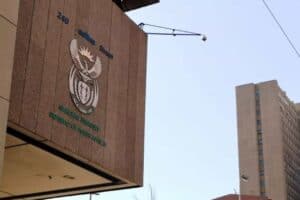Unions say they are accepting the offer as a stop-gap, until the economy improves, but economists warn their demands could be detrimental.

While unions are considering accepting the offered 1.5% public wage increase and lump sum gratuity, government would have to strategically source the unbudgeted R18 billion on offer, while remaining under the watchful eye of international credit rating agencies.
Public service and administration (DPSA) Minister Senzo Mchunu put down an offer of a 1.5% wage increase, including a monthly cash allowance of between R1200 and R1600. This also means that the lowest paid workers would receive an increase of 11.7%. The proposed wage increase is apparently expected to cost the public purse R18 billion.
The once-off offered 1.5%, which is due to all 1.3 million public servants between 1 July 2021 and March 2022, had already been budgeted for by the National Treasury as part of its current pay framework.
“The finances [to fund this] would come from the fiscal framework. That is where we are looking at,” said DPSA spokesperson Kamogelo Mogotsi, without providing details of where exactly pruning would have to happen in order to secure the funds.
ALSO READ: Nehawu vows to fight for public servants’ salary increase
Government had initially offered a zero percent wage increase due to financial constraints, but there seems to be an improvement in the country’s revenue, said economist Dawie Roodt.
“There is a bit of good news. Even if [government] is cash-strapped, recently it seems the revenue is doing a little bit better. The collection [of revenue] is probably going to be a bit better, which is going to be good enough to fund about R15 billion or so,” he said.
Robbing Peter to pay Paul?
But this means diverting money from other “worthy causes” which will affect the economy while the country’s financial moves remain closely watched by the three major rating agencies, said University of KwaZulu-Natal chief economist Professor Bonke Dumisa.
“What worries me even more is that the three major rating agencies have specifically told SA that they are watching them as the GDP ratios are unhealthy and they are aware of the trade unions and public sector demanding salary increases,” Dumisa said.
“They are going to factor this in, but because they normally do their adjustments at the end of March or beginning of April, their next assessment might be in November. I think they will factor in [the wage increase offer] and we will see how it is going to pan out when they do other adjustments, if any, in November.”
Acceptance only a stop-gap until fiscus improves
Union Public Servants Association of South Africa (PSA), which are members of the Public Service Coordinating Bargaining Council (PSCBC), said they would revert back on Friday on the acceptance of the offer pending a response from their members.
Should the unions and affiliates agree on the proposed offer, it would only be as a “stop-gap” measure until the fiscus improves, said PSA assistant general manager Reuben Maleka.
“Government is saying that once the fiscus looks better, we can go back to the demands and negotiate on them. Whatever they say, we give it to our members… Friday is the crucial day to actually have a better understanding of whether the unions will accept this as a stop-gap measure. This [offer] is something that gives our members cash in their pockets,” said Maleka.
ALSO READ: Mchunu laments ‘laziness, incompetence’ in SA’s public service
Unions being ‘unfair’
But economists felt the demand for a wage increase during a period when the South African economy is practically crippled and job losses due to the pandemic rife, is “unfair”.
“The people who are the real engine of the SA economy – the private sector employees – most of them had to do with pay cuts and some lost their jobs and the public sector, which is at the expense of us, the taxpayers, would have to fund this. It is unfair,” said Dumisa.
According to Roodt, public sector workers were on average paid more than those in the private sector.
“For many years they have received well-above inflation adjustments. The public sector workers must come to the party. You can’t expect the private sector to pick up the bill,” said Roodt.






